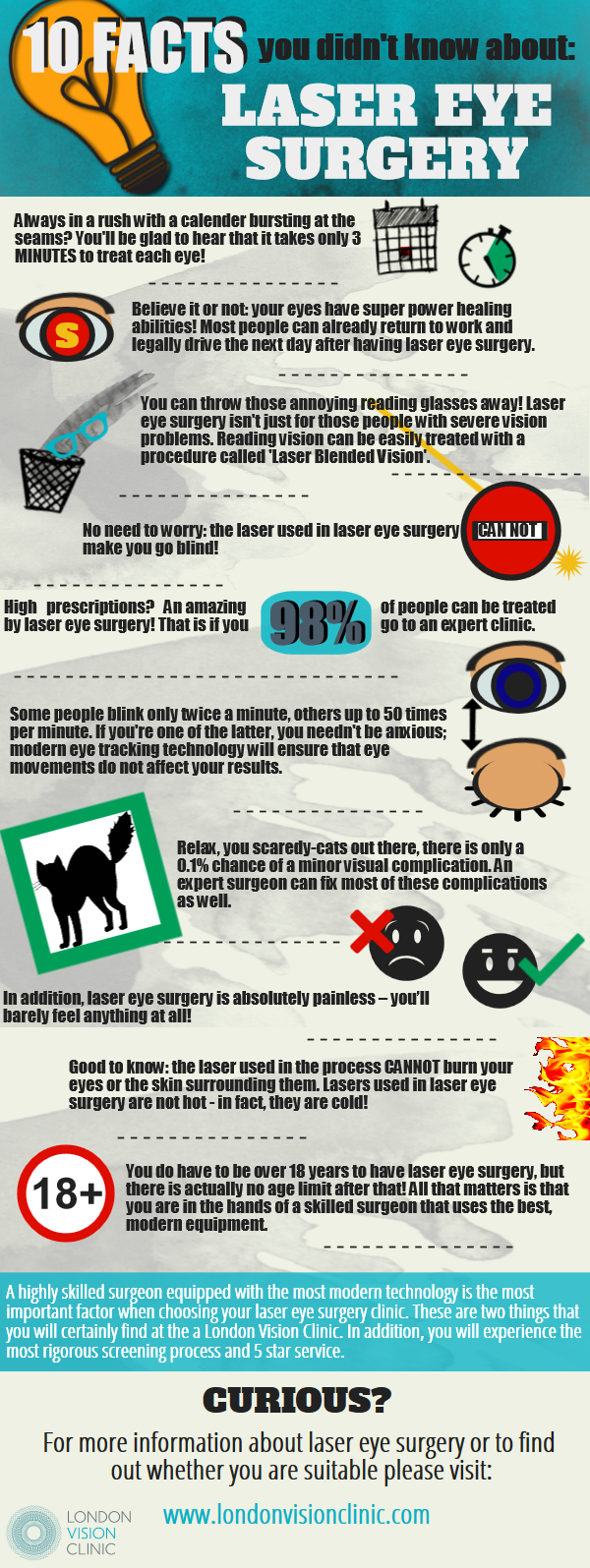The Complete Frequently Asked Question On Refractive Lens Exchange: Vital Information You Need To Know
The Complete Frequently Asked Question On Refractive Lens Exchange: Vital Information You Need To Know
Blog Article
Web Content Writer-Hunter Bondesen
If you're considering refractive lens exchange, you probably have a great deal of questions. This treatment could alter exactly how you see the world, using advantages like reduced reliance on glasses. Nevertheless, it's necessary to understand the process, risks, and who qualifies as a good candidate. Let's check out these important facets so you can make an informed decision regarding whether RLE is right for you.
What Is Refractive Lens Exchange and How Does It Function?
Refractive lens exchange (RLE) is a surgical procedure created to replace your eye's natural lens with a fabricated one, dealing with vision problems like nearsightedness, farsightedness, or presbyopia.
During the treatment, your specialist makes a little cut in the eye, removes your natural lens, and inserts an intraocular lens (IOL) tailored to your vision needs. This outpatient surgical treatment typically takes about 15 to half an hour per eye and is carried out under regional anesthesia.
You'll likely observe improvements in your vision nearly immediately, though full recovery might take a couple of weeks. RLE is specifically beneficial for those over 40 or with high prescriptions, supplying a durable option compared to glasses or contact lenses.
Your eye treatment specialist can help determine if RLE is right for you.
What Are the Perks and Dangers of Refractive Lens Exchange?
Choosing refractive lens exchange can bring about considerable renovations in your vision, however it is essential to consider both the advantages and risks before choosing.
On the bonus side, this procedure can enhance your eyesight by dealing with issues like presbyopia, nearsightedness, and hyperopia. Many individuals appreciate lowered dependence on glasses or get in touch with lenses, which can significantly boost their lifestyle.
Nonetheless, it's important to consider potential dangers. Difficulties can include infection, glare, or halos around lights.
There's additionally https://www.deseret.com/2021/3/10/22324268/this-new-eye-surgery-can-fix-your-after-40-vision of overcorrection or undercorrection, which may need extra treatments.
Who Is a Perfect Prospect for Refractive Lens Exchange?
If you're taking into consideration refractive lens exchange, it's important to understand whether you fit the account of a suitable prospect. Normally, you might be a good candidate if you're over 40, experience presbyopia, or have high levels of nearsightedness or farsightedness.
It's likewise important that your vision is stable, meaning your prescription hasn't transformed dramatically in the past year. If PRK Surgery Timeline Portland have cataracts or other eye problems, you might benefit from this treatment also.
Nevertheless, particular elements, like uncontrolled diabetes or autoimmune conditions, can invalidate you. To establish your candidateship, speak with an eye care expert who can examine your specific scenario and recommend the best strategy tailored to your demands.
Conclusion
In conclusion, refractive lens exchange can be a transformative option for improving your vision, specifically if you more than 40 or have a high prescription. While the benefits are significant, it's important to consider the risks and consult with your eye care specialist to figure out if you're a suitable prospect. With the appropriate information and guidance, you can make a notified choice and perhaps take pleasure in a life with lowered dependancy on glasses.
